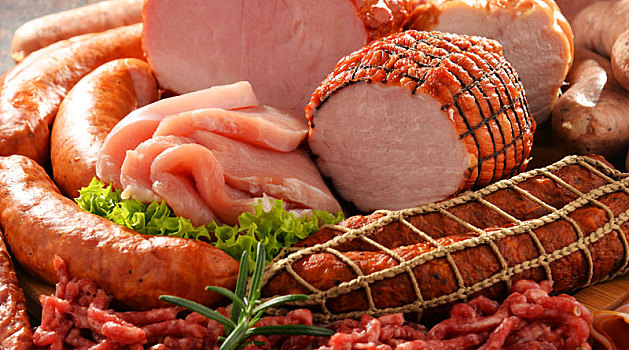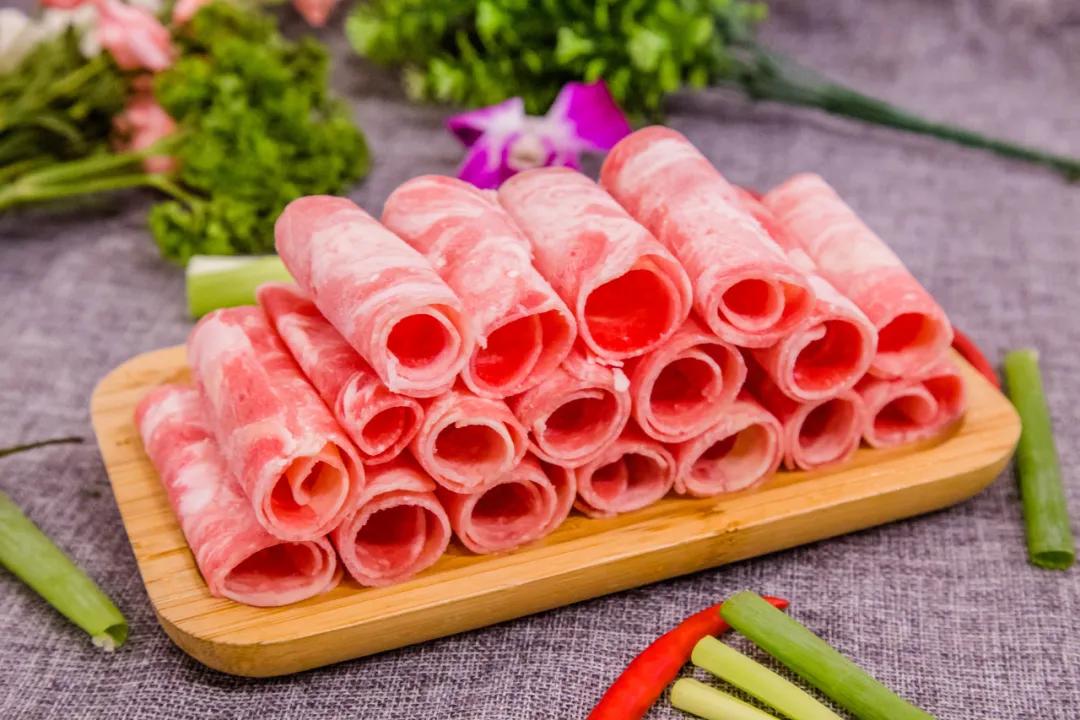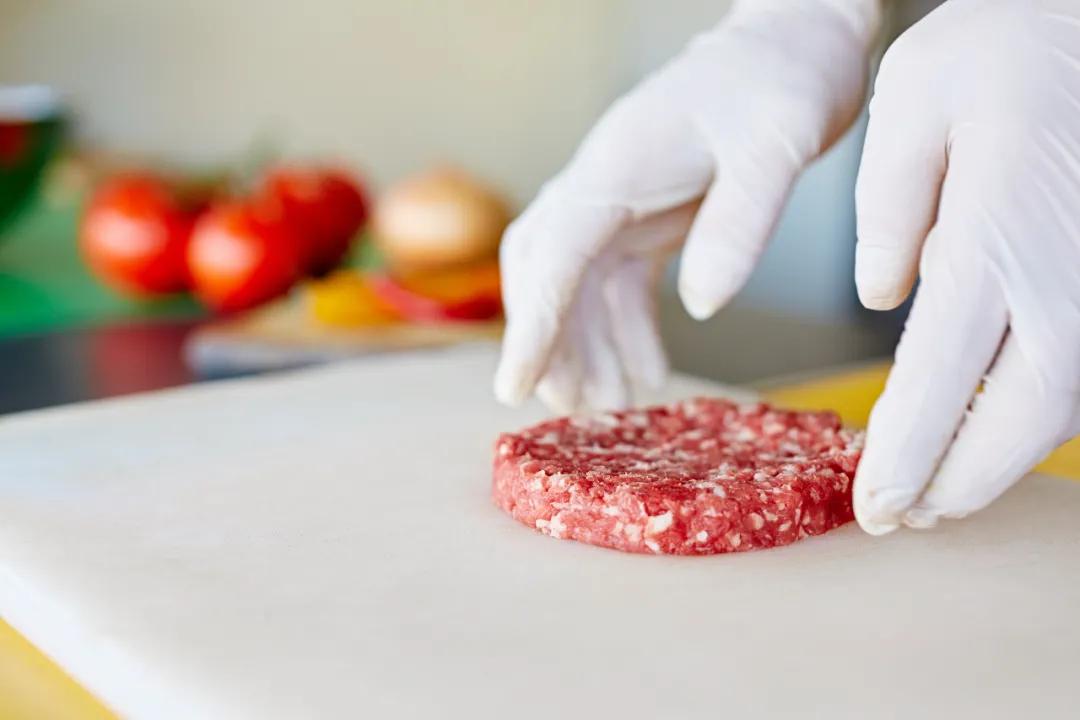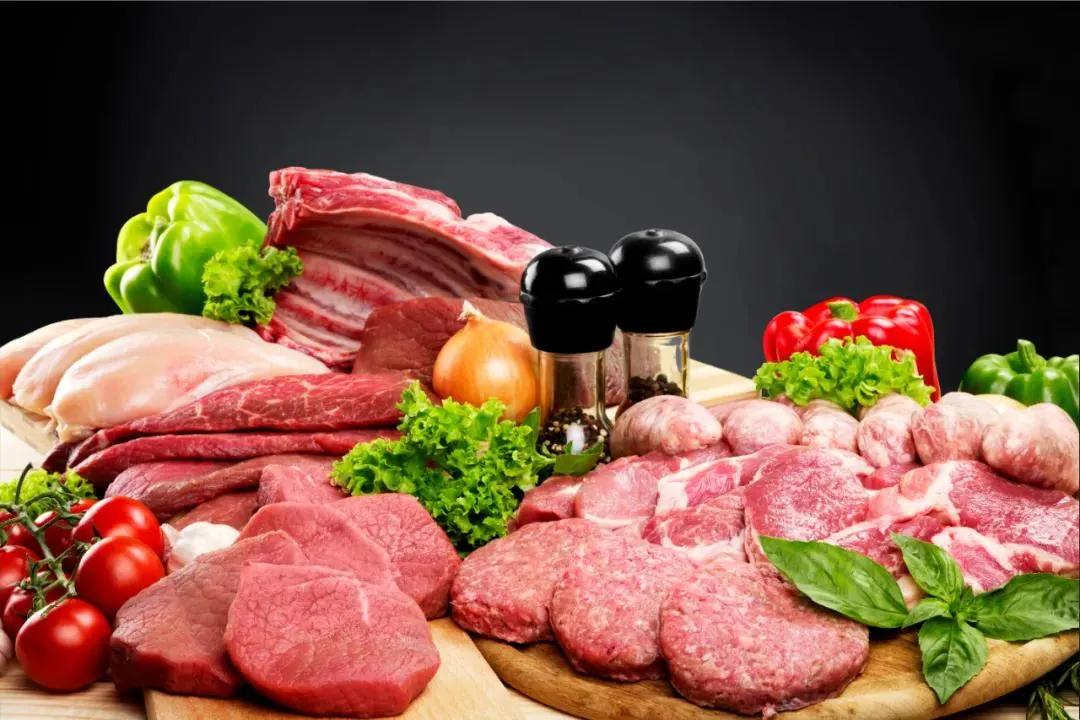
Sodium alginate uses and function in meat products formulation and texturization
Sodium alginate, also known as algin, is a natural polymer polysaccharide extracted from deep sea brown seaweed. It has functions as excellent thickener, stabilizer, emulsifier, moisture retention, gelling agent, filming agent, texture improver in meat products. Its properties determines that sodium alginate can be formulated with other hydrocolloids to improve meat products quality and play an important role in the processing of meat products.
Sodium alginate function as fat replacer
sodium alginate can form heating irriversable gel with calcium ion. Based on its properties, the thickener formulated with sodium alginate, calcium salts, and other ingredients can work well for gelling. It can be used to produce fat replacer. It features:
(1) reduce the cost by 40-50%
(2) replace fat, reduce the annimal fat usage by 50%
(3) improve texture, form irreversible gel to ensure stable meat structure, brittle, oil preservation, and water retention.
(4) uniform texture and good segmentation, can be used in ham, sausage etc.
Formulations reference
| Ingredients | dosage |
| Pork | 35% |
| Chicken | 14.8% |
| Starch | 8% |
| Salt | 1.8% |
| Isolated Soy Protein | 2.8% |
| Spice | 0.3% |
| Compound phosphate | 0.3% |
| Sugar | 1.5% |
| Sodium alginate based thickener | 0.2-0.8% |
| Ice water | 35% |
Sodium alginate function as water retention
The water holding power of meat products is an important indicator of its quality. It not only affects its color, fragrance, taste, nutritional ingredients, juice, tenderness, etc., but also affects the economic value of the meat product.
The principle of water holding is that after sodium alginate penetrates into the cellular tissue gap after it is inflated, and then forms calcium alginate with the infiltrated calcium salt, which combines meat protein to form a dense 3-dimensional network structure - the heating irreversible gel structure.
It is precisely because of this gel structure formed by sodium alginate that the water in the meat can not be lost, and the gel is irreversible. It is not subject to heating or time limit, so that meat products can have good water retention, hardness and elasticity.

SHAND et al. study of restructured beef rolls found that the compound of calcium alginate and gellan can make the cooking rate significantly improved. Yu studies show that using alginate coating can improve the quality of frozen meat. Sodium alginate coating can reduce the amount of thawing of frozen meat, while maintaining the functional characteristics and total protein dissolving of frozen meat.
Sodium alginate function as emulsifier
Sodium alginate stabilizer has good emulsification and can make emulsion with water and fat. It is used in high-temperature meat products and emulsion meat milde products. The elasticity and toughness, slice performance, meat texture can be improved.
Formulation for meat balls
| Ingredients | dosage |
| Fat | 15% |
| Pork | 35% |
| Phosphate | 0.2% |
| Salt | 1.8% |
| Spice | 0.5% |
| Starch | 0.2% |
| Isolated soya protein | 8.0% |
| Sodium alginate based stablizer | 0.2-0.5% |
| Ice water | 39% |
Sodium alginate function as binder
During the production process of meat products, many edge meat pieces will be caused. After restructured the meat pieces with binder, the utilization of meat can be improved. The restructured meat can be used to produce bacon, meat slices. In addition, meat binder are also used in burgers and meat cakes.
The gel characteristics of sodium alginate have high application value in meat binder. Sodium alginate based binder can be used in hamburger cakes, onion rings etc, it can be used as a binding agent for large pieces of meat.

There are many application cases for alginate based binder in the literature. Yang Qin and others optimized the application of sodium alginate binders in restructured beef. It was found that the best addition was 0.4% sodium alginate+0.075% calcium carbonate+0.6% lactic acid. Means et al. studied calcium alginate gel use in the restructured steak, from the color, strength, taste, flavor and other indicators we get the optimized ingredient formulation: 0.8%-1.2% sodium alginate+0.144%-0.216 % Calcium carbonate and 500 mg/kg of sodium ascorbate.
Sodium alginate function as a fresh-keeping agent and nutritional protective agent for meat products
Sodium alginate can form a hydrophilic film, which is suitable for freshness in the coating film of meat products. The research results of Huang Lei and others show that fresh beef with sodium alginate -coating film can significantly reduce the loss of the juice of cooling beef. Packing the shelf period of the fresh beef is effectively extended with the combination of the compound of the phosphate and the sodium alginate composite membrane under vacuum conditions, maintaining fresh beef color and preventing juice loss.
The fresh meat treated with sodium alginate solution can be stored for long time at low temperature. It also can significantly inhibit the reproduction of surface microorganisms, prevent oxidation of fat, and delay acid failure. Acetate coating film containing lactic acid and acetic acid can reduce monomybacteria, bacteria and E. coli in beef tissue.
The results of the research by Yu Xiaoling and others show that sodium alginate can significantly reduce the thawing juice loss of pork, which is also very useful for keeping frozen pork. The content of sodium alginate has a significant impact on total protein dissolving and active cymbal base. The optimal coating film process conditions determined by testing are: 3% sodium alginate+7% calcium chloride, the response time of calcium chloride and sodium alginate on the surface of meat is 5-7min.

Sodium alginate to produce plant-based meat
With its characteristics of forming gel under the action of calcium ions, using sodium alginate as a gel molding agent and separate soybean protein as a filling agent can obtain imitation meat fiber with heat resistance. This imitation meat fiber can be directly seasoned or fried and seasoned.
With this imitation meat fiber as the raw material and refering to the cooking method of meat products, different flavored soy protein imitation meat products can be made. It can be processed into vegetarian meat products similar to ham, bacon, chicken, and beef. Its product tissue is softer than the natural meat products.
Sodium alginate is a kind of hydrophilic colloid. The gel formed after combining calcium ions has a heat irreversible specialties. It can form a dense and stable mesh structure in the meat products. It can improve the gel strength, binding properties, water retention. Conclusion and water holding performance. A variety of hydrophilic colloids such as sodium alginate, gelatin, pectin, konjac gum, Kara gum, and gellan have a synergistic effect, and have good application prospects in meat products.
